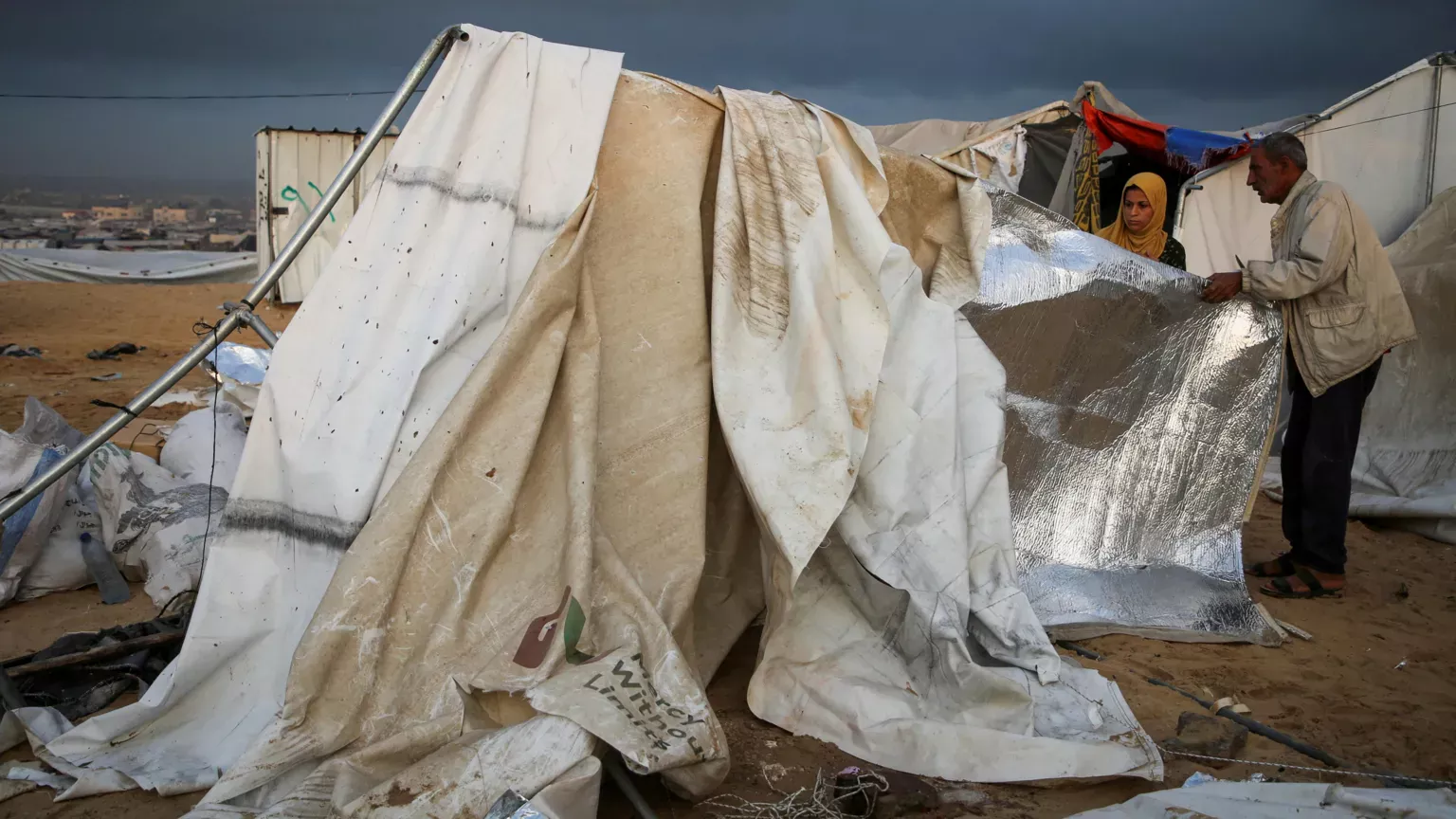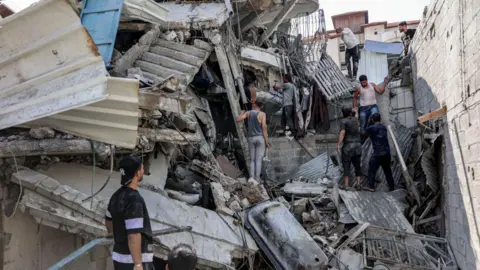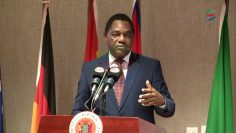
US gives Israel 30 days to boost Gaza aid or risk cut to military support
(BBC) The US has written to Israel, giving it 30 days to boost humanitarian aid access in Gaza or risk having some US military assistance cut off.
The letter, sent on Sunday, amounts to the strongest known written warning from the US to its ally and comes amid a new Israeli offensive in northern Gaza that has reportedly caused a large number of civilian casualties.
It says the US has deep concerns about the deteriorating humanitarian situation, adding that Israel denied or impeded nearly 90% of humanitarian movements between the north and south last month.
Israel is reviewing the letter, an Israeli official was reported as saying, adding the country “takes this matter seriously” and intends to “address the concerns raised” with US counterparts.
Israel has previously said it is targeting Hamas operatives in the north and not stopping the entry of humanitarian aid.
On Monday, the Israeli military body responsible for managing crossings into Gaza, Cogat, said 30 lorries carrying aid from the World Food Programme had entered northern Gaza through the Erez crossing.
That ended a two-week period during which the UN said no food aid was delivered to the north, and supplies essential for survival were running out for the 400,000 Palestinians there.
A UN official has said that Gaza is in a state of “constant peak emergency”.
Antoine Renard, head of the World Food Programme (WFP) in the occupied Palestinian territories, told the AFP news agency people in the north of the territory were “relying solely on assistance” with practically no access to fresh food other than that provided by UN agencies.
The US is by far the biggest supplier of arms to Israel, and the Israeli military has relied heavily on US-supplied aircraft, guided bombs, missiles and shells to fight the war against Hamas in Gaza over the past year.
The US letter to the Israeli government – the contents of which have now been confirmed by the state department – was first reported by the Axios website. It is signed by Secretary of State Antony Blinken and Defence Secretary Lloyd Austin.
“We are now writing to underscore the US government’s deep concern over the deteriorating humanitarian situation in Gaza, and seek urgent and sustained actions by your government this month to reverse this trajectory,” it says.
It states that Israeli evacuation orders have forced 1.7 million people into the narrow, coastal al-Mawasi area where they are at “high risk of lethal contagion” due to extreme overcrowding, and that humanitarian organisations report that their survival needs cannot be met.
“We are particularly concerned that recent actions by the Israeli government – including halting commercial imports, denying or impeding nearly 90% of humanitarian movements between northern and southern Gaza in September, continuing burdensome and excessive dual-use restrictions, and instituting new vetting and onerous liability and customs requirements for humanitarian staff and shipments – together with increased lawlessness and looting – are contributing to an accelerated deterioration in the conditions in Gaza,” it adds.
The letter says Israel “must, starting now and within 30 days” act on a series of concrete measures to boost aid supplies, adding that failure may “have implications for US policy”.
It cites US laws which can prohibit military assistance to countries that impede delivery of US humanitarian aid.
It says Israel must “surge all forms of humanitarian assistance throughout Gaza” before winter, including by enabling a minimum of 350 lorries a day to enter through all four major crossings and a new fifth crossing, as well as allowing people in al-Mawasi to move inland.
It also calls on Israel to end the “isolation of northern Gaza” by reaffirming that there will be “no Israeli government policy of forced evacuation of civilians” from north to south.
At a news conference in Washington on Tuesday, US state department spokesman Matthew Miller told reporters that the letter was “a private diplomatic communication that we did not intend to make public”.
“Secretary [Blinken] along with Secretary Austin thought it was appropriate to make clear to the government of Israel that there are changes they need to make again to see the level of assistance making it into Gaza comes back up,” he said.
Mr Miller declined to speculate on what consequences there might be for Israel if it did not boost humanitarian aid access.
But he noted: “Recipients of US military assistance do not arbitrarily deny or impede provisioning of US humanitarian assistance. That’s just the law and we of course will follow the law. But our hope is that Israel will make the changes that we have outlined.”
He also said the 30-day time limit was not linked to the upcoming US presidential election on 5 November, saying it was “appropriate to give them time to work through the different issues”.
Israel has previously insisted there are no limits to the amount of aid or humanitarian assistance that can be delivered into and across Gaza, and blames UN agencies for failing to distribute supplies. It also accuses Hamas of stealing aid, which the group denies.
Before Israel’s ground offensive in the southern Gaza city of Rafah in May, President Joe Biden suspended a single consignment of 2,000 and 500lb bombs for the first time as he tried to dissuade it from an all-out assault.
But the president immediately faced a backlash from Republicans in Washington and from Israeli Prime Minister Benjamin Netanyahu, who appeared to compare it to an “arms embargo”. The suspension was partially lifted in July and has not been repeated.

Earlier on Tuesday, the International Committee of the Red Cross (ICRC) warned that families in northern Gaza were “facing unimaginable fear, loss of loved ones, confusion, and exhaustion” because of the Israeli offensive that began 10 days ago.
The Israeli military says it has sent tanks and troops back into the town of Jabalia and its urban refugee camp for a third time to root out Hamas fighters who have regrouped there.
It has ordered residents of Jabalia, as well as neighbouring Beit Lahia and Beit Hanoun, to evacuate to the al-Mawasi “humanitarian area”.
The UN says about 50,000 people have fled to Gaza City and other parts of the north. But for many it is unsafe to leave their homes or they are unable to leave because they are sick or disabled.








